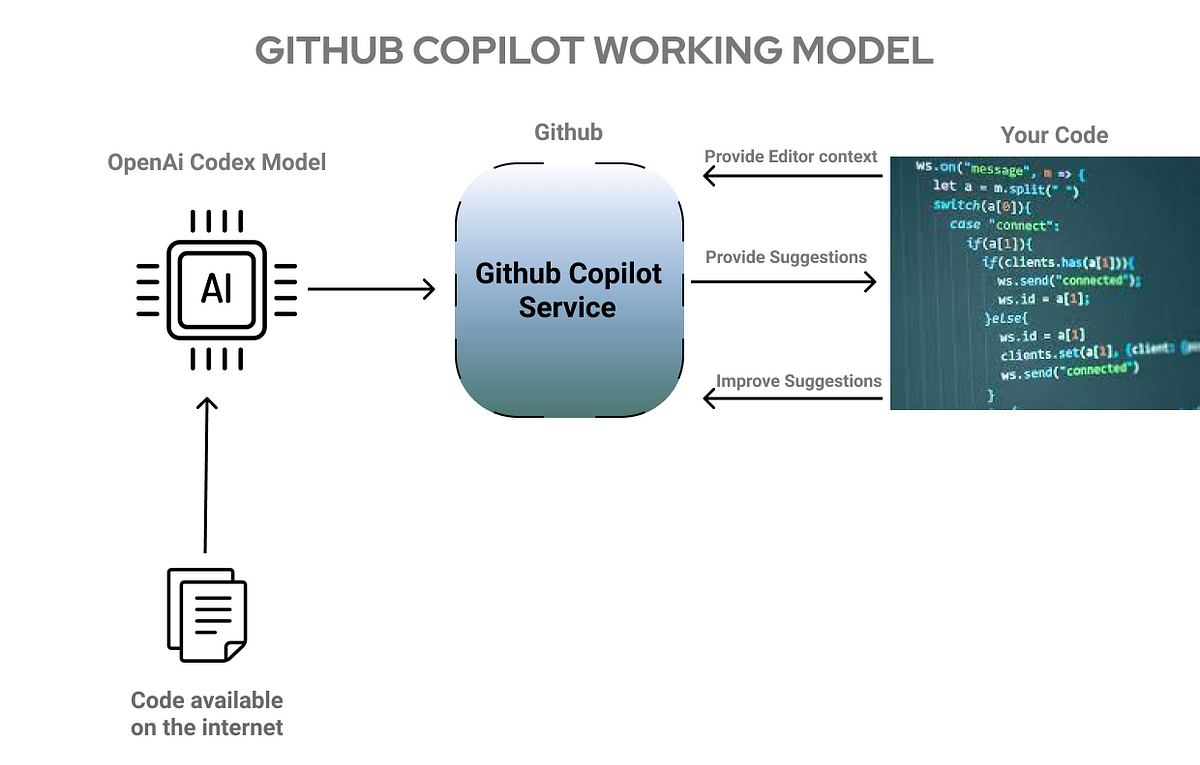Can Github’s Copilot replace developers?

Original Source Here
In simple words, Copilot really understands what you want to code in the next line. In my case, it even understands bad comments perfectly. Sometimes, it makes a few silly mistakes like declaring the same variable repeatedly; these kinds of bugs were already expected, which is why Github initially gave developers access to give their feedback. I was quite surprised by its ability to understand. You just have to feed it with a few examples and the rest will generate itself perfectly.
So far, there are 3 main features I would like to mention:
- Convert comments to code.
Github Copilot can understands bad comments and function names.
2. Tests without the toil.
This is the only feature I would recommend you all to use in Github Copilot.
3. Autofill for repetitive code.
Github Copilot is the more advanced form of already available autosuggestion plugins. Which is obviously good for experienced developers, but not for newbies.
But Github Copilot does NOT write perfect code every time. As Github says, its Copilot always tries its best to understand your intentions but the code it suggests may not always work, or even make sense. It will improve with the passage of time.
How does it work?
According to Github Copilot, it has been trained on a selection of English language and source code available on the internet including all Github repositories (except private repositories).
The above diagram speaks for itself. Coding-related text and available public code on the Internet (Github) is retrieved by Codex, which uses its algorithm and passes it on to the service Github Copilot. This service then provides suggestions for our private code, which is actually not private, as it sends suggestions for improvement back to the service Github Copilot. 
Codex Theory but interesting.
According to the Codex paper, a 35-page long paper released a week ago, “Codex is a GPT language model fine-tuned on publicly available code from Github, and study its Python code-writing capabilities.” Codex is much more efficient and improved than GPT-3 because it’s been trained on many public repositories available on Github.
The paper also claims that it has solved 10,000+ competitive programming problems.
About data collection, the paper says:
Our training dataset was collected in May 2020 from 54 million public software repositories hosted on GitHub, containing 179 GB of unique Python files under 1 MB. We filtered out files which were likely auto-generated, had average line length greater than 100, had maximum line length greater than 1000, or contained a small percentage of alphanumeric characters. After filtering, our final dataset totaled 159 GB”
Finally, this paper concludes that:
By fine-tuning GPT on code from GitHub, we found that our models displayed strong performance on a dataset of human-written problems with difficulty level comparable to easy interview problems
This was all about the stats and facts of Codex, which is the backbone of Github Copilot. The paper clearly says that it will produce more accurate and effective results in the future, which means Github Copilot will become stronger and stronger.
AI/ML
Trending AI/ML Article Identified & Digested via Granola by Ramsey Elbasheer; a Machine-Driven RSS Bot
via WordPress https://ramseyelbasheer.io/2021/07/31/can-githubs-copilot-replace-developers/